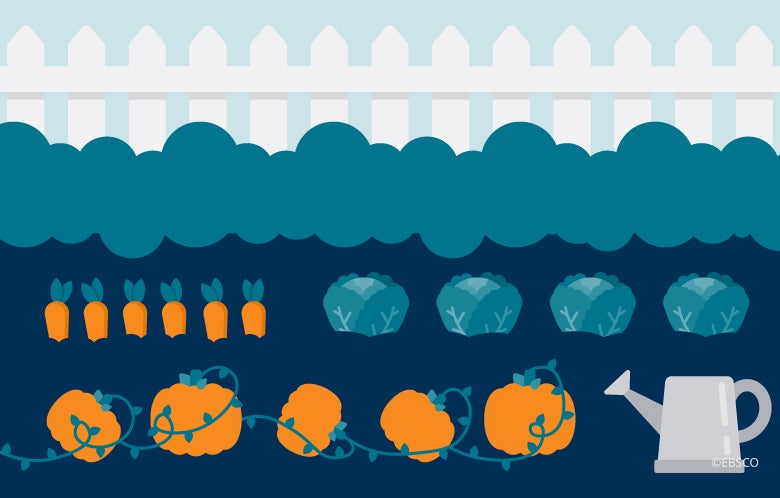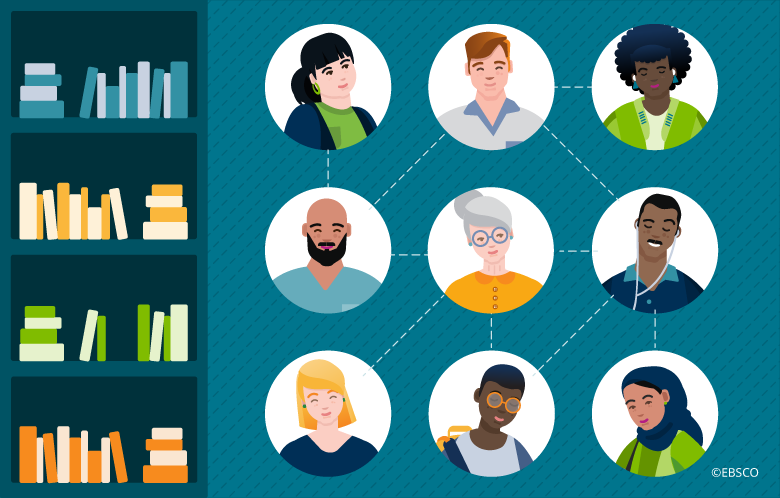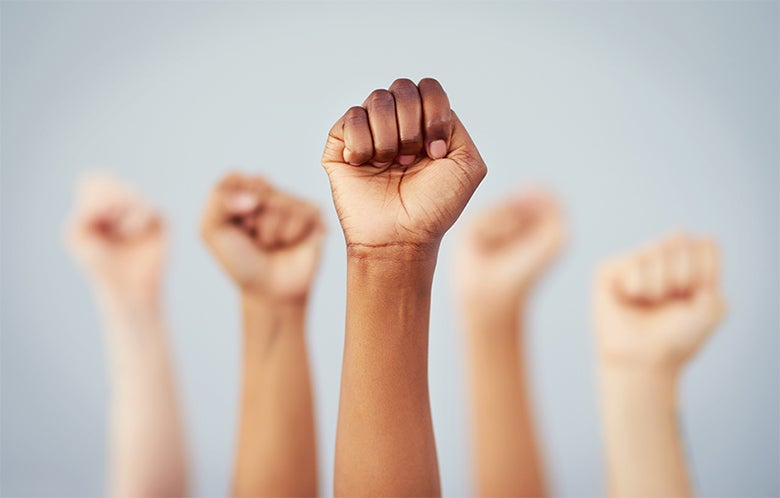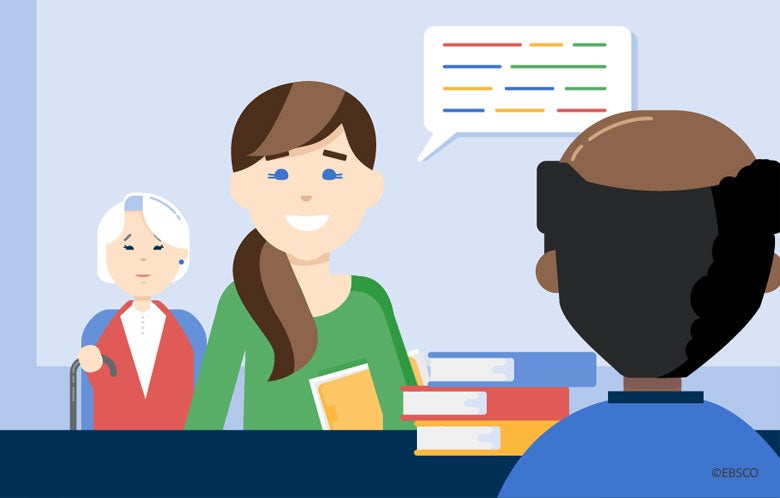Deliberate efforts to support and address the United Nations’ Sustainable Development Goals (SDGs) are happening in libraries around the world. The International Federation of Library Associations (IFLA) has created a Library Map of the World featuring stories that demonstrate how libraries and access to information contribute to improved outcomes across all SDGs. The Scholarly Kitchen recently published an article about what libraries can do to communicate and promote the SDGs.
In this blog post, the second in our series, we look specifically at how libraries are supporting Goals Two and Three. Combined, these goals aim to end hunger, achieve food security and improved nutrition, promote sustainable agriculture, ensure healthy lives, and promote well-being for all people at all ages.
Zero Hunger
Earlier this year, American Libraries highlighted the SDG Book Club at Batesville (Ind.) Intermediate School. Comprising two dozen fourth and fifth graders, the book club met for 30 minutes four days a week to read and discuss “Serafina’s Promise,” a novel by Ann E. Burg that reflects the intersection of poverty, hunger, health and education. Students connected the book’s themes to the SDGs, prepared multimedia lessons to share with classmates, and organized a read-a-thon that raised $3,200 for the Grain of Rice Project, a school initiative in Kenya.
According to Anne Amrhein, media specialist at Bates Intermediate School, activities such as these introduce students to global perspectives on world issues and help them strengthen their collaboration and leadership skills. “What began as a desire to help small-town children expand their views of the world grew into a broader program that affected our school, community and beyond,” she said.
Food Security, Improved Nutrition and Sustainable Agriculture
After conducting a community needs assessment in 2017, Msunduzi Municipal Library Services of Pietermaritzburg, South Africa, discovered that residents were experiencing food shortages and low quality of food. In response, library leaders launched the “One House, One Garden” project to plant vegetable gardens in the libraries’ open spaces. Since then, the community gardens have helped feed 112 families, 70 elderly home residents and 49 orphaned children. Through partnerships with other government departments, the library has been able to procure vegetable seeds on a regular basis so that community members can continue growing healthy food year after year.
Health and Well-being
Mental health is as important to a person’s well-being as good nutrition and physical fitness. Originated in Denmark in 2000, the Human Library creates a safe space for people who experience discrimination based on cultural, religious, social and ethnic differences. It is a social movement that aims to foster open dialogue and challenge stereotypes. Organizers of Human Library events invite a set of “open books”— human beings who volunteer to share their personal experiences on topics such as race, gender, sexual orientation and disability. “Readers” (attendees) ask questions to initiate a conversation.
Human Library events have been held in 85 countries across six continents. Nazarbayev University Library in Kazakhstan began its own Human Library in 2016 and has since hosted a handful of events featuring people with disabilities, members of the LGBTQ+ community, and young women in science. The events are part of the library’s inclusive education program “to address discrimination and other social issues, so that young people will understand that it is possible to live in a harmonious society without physical or mental abuse.” The events have not only helped attendees see how their pre-conceived biases can harm others, but also helped participants feel more supported by their community.
Relevant EBSCO Resources for Consumers
EBSCO offers hundreds of databases to aid research across all 17 SDGs. For those focusing specifically on Goals Two and Three, consider adding the following resources to your collection:
Consumer Health Complete™ and its companion Spanish-language database Salud en Español™ offer full-text journals and magazines, reference books, e-books, evidence-based health reports and more covering all key areas of health and wellness from mainstream medicine to complementary and holistic medicine. Topics include women’s health, teen health, senior health, exercise and fitness, food and nutrition, mental health and more.
ConsumerReports.org® includes a dedicated Health section featuring expert reviews and ratings for fitness, food and personal care products. Users can also read the latest news about drugs, hospital safety and more.
Flipster® offers dozens of digital magazines for those looking to improve their fitness and develop healthy eating habits. Titles include Better Nutrition, Bon Appetit, Clean Eating, Eating Well, Fit, Gluten-Free Living, Health, Prevention, Runner’s World and many more.
Relevant EBSCO Resources for Researchers
Alt Healthwatch™ is a full-text alternative health research database focused on complementary, holistic and integrated approaches to health care and wellness. It offers the latest information about the evolving practice of holistic medicine and therapies. Subjects include acupuncture, chiropractic and homeopathy.
EBSCO eBooks™ offers collections of high-quality titles that can support research associated with Goals Two and Three. These include Doody’s Quarterly Collection on Health Equity, Health Informatics, and more than a dozen subject sets covering important healthcare topics such as aging and gerontology, diseases and conditions, emergency medicine and wellness.
Food Science Source™ is an extensive full-text database designed to support the research needs of the food industry. It provides hundreds of full-text journals, monographs, magazines and trade publications, plus a wealth of food industry and market reports. Subjects include food processing, safety, service, shipping and innovation.
Additional research databases include:
- AGRICOLA™
- CAB Abstracts®
- CAB Abstracts® with Full Text (coming soon!)
- FSTA – Food Science & Technology Abstracts®
- FSTA® with Full Text (coming soon!)
- Global Health (CABI)
- Health Library™
- Natural & Alternative Treatments™
- and more!
In our next blog post, we’ll look at how libraries are supporting Goal Eight, which focuses on promoting inclusive and sustainable economic growth, full and productive employment, and decent work for all.



